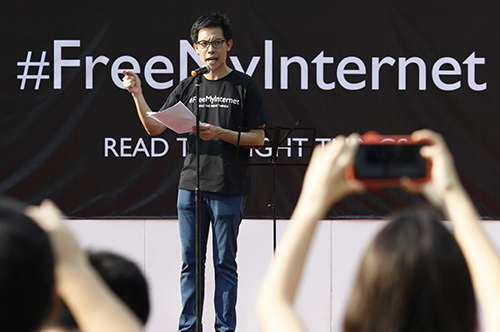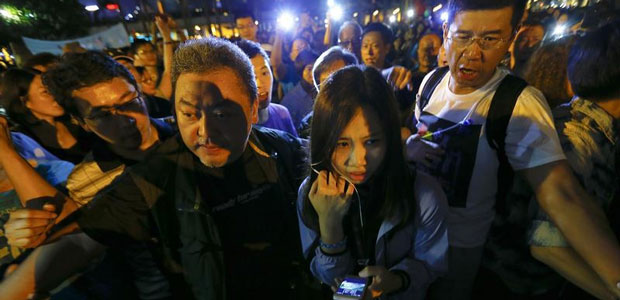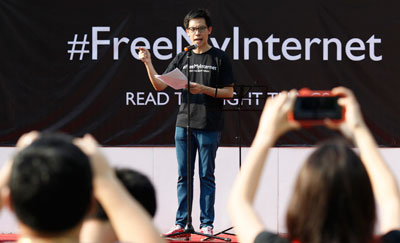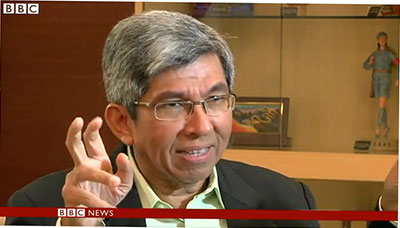Singapore court sentences online editor for sedition
Bangkok, March 24, 2016 – The Committee to Protect Journalists condemns a Singaporean court’s sentencing Wednesday of an Australian editor of a now-defunct independent Singaporean news website, and calls on authorities to stop jailing journalists and censoring websites.

Blogger in Singapore faces financial ruin following defamation suit
“If we want our freedom, we have to fight for it,” wrote blogger Roy Ngerng last year after he was sued for defamation by Singapore’s prime minister. The case was sparked by a blog post in which Ngerng allegedly suggested Prime Minister Lee Hsien Loong had misappropriated funds in a state pension system. In November,…
Singaporean authorities shut down The Real Singapore news website
Bangkok, May 5, 2015–Singaporean authorities on Sunday ordered an independent news website to be shut down, citing the website’s content as being objectionable to state interests, according to news reports. The Real Singapore is the first news website to be shut down under Singapore’s licensing regulations, introduced in 2013, according to CPJ research.

For clues to censorship in Hong Kong, look to Singapore, not Beijing
When journalists covering pro-democracy demonstrations in Hong Kong on September 28, 2014, got word that protesters were having problems with cell phone service, it appeared to be a familiar response from governments across the world to dissent.
Lee Kuan Yew’s legacy
What to make of Singapore’s first and former Prime Minister Lee Kuan Yew, who died Monday morning in the city-state? Under the banner of the People’s Action Party, Lee held government power for three decades. After stepping away from the prime minister’s office in 1990, he held positions of senior minister and later “minister mentor”…

In Singapore, blogger under pressure, CPF under scrutiny
A critical Singaporean blogger continues to suffer financial and legal pressure because of a blog post that allegedly accused the city-state’s prime minister, Lee Hsien Loong, of corruption. The episode is part of a disturbing pattern of government legal and financial pressure on critics, but it is also a lesson in how censorship can backfire.
Singapore blogger: ‘I have been waiting’ for government backlash
EDITOR’S NOTE: This week, Singaporean Prime Minister Lee Hsien Loong demanded an apology from a critical blogger who has allegedly accused him of corruption. Roy Ngerng Yi Ling, who is also a healthcare worker, has frequently posted critical commentary on the ruling People’s Action Party on his blog, The Heart Truths.

Singapore bloggers wary of news site license scheme
Singapore’s Internet community is in backlash since the government announced on May 28 a new licensing scheme for “news websites”–a term it did not define–arguing that digital news platforms ought to be regulated on par with offline media. The government said the scheme would take effect June 1.
